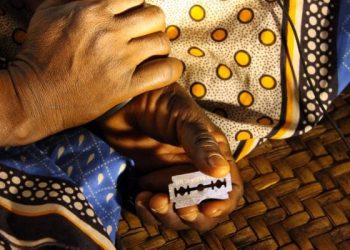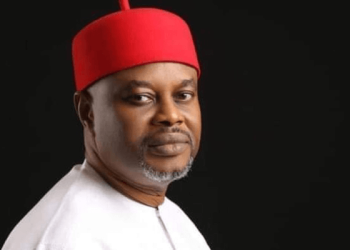- No doubt about Kaduna government’s power to legislate. But it must democratically engage every stakeholder to ensure the proposed law is fair and equitable to all
The sabre-rattling that 5, 000 pastors would rather go to gaol than obey a proposed law is what should never be tolerated in a democracy. This latest threat is from the Pentecostal Fellowship of Nigeria (PFN), Kaduna State branch, over the proposed law: “A Bill for A Law to Substitute The Kaduna State Religious Preaching Law, 1984”
Democracy, as much as it is founded on citizens’ rights, is even more firmly anchored on the Rule of Law. While the Rule of Law, with due process, its concomitant, permits legitimate dissent, it certainly decries threats to constituted authority — or worse: against legitimately passed laws.
Yet, that is what this Kaduna PFN menace amounts to. It is neither backed by the civic responsibility to obey laws nor by the Christian creed, the PFN’s religious constitution. Such bellicose behaviour is no fine advertisement for the Christian community and it ought to be decried by every right thinking Christian.
Still, that is not to say that the Kaduna Christian community lacks the civil right to kick against any law that it thinks breaches its legally guaranteed rights. In doing so, however, it must resort to democratic engagement, not blind threats.
Such an engagement would include sensitising and lobbying representatives in the Kaduna State House of Assembly about their fears by the law, mobilising in numbers to the bill’s public hearings to sway public opinion, and investing in mass education and enlightenment, to chisel away at that aspect of the law, which they find injurious.
The Kaduna State government itself must scale up mass enlightenment about its intentions by the law. It may have sounded far more conciliatory and pacifist than its Christian folk but it perhaps needs to do more.
Going to the basics, there is no doubt that the state government has constitutional powers to make laws for the good of its people, even in the rather emotive area of regulating religious practices, for peace and security.
Section 38(1) of the 1999 Constitution (as amended) guarantees religious freedom. But section 45(1) of the same document also empowers the government to make “reasonably justifiable” regulatory laws “in the interest of public safety, public order, public morality or public health or for the purpose of protecting the rights and freedoms of other persons”.
The snag here is that some Christian blocs in Kaduna, and sympathisers elsewhere, allege the proposed law might be skewed against their faith. But that appears backed only by old fears, not any concrete facts, because others also insist its intention is rather to avert fundamentalists from non-mainstream Islamic sects pushing out hate messages, and setting the state on fire.
Indeed, this fear seems to have driven section 4(a) and (b) of the Bill, which mandates Christian and Islamic bodies to recommend to the Ministerial Committee (all three provided for by the Bill), to grant yearly licences to preachers in the state, just to vouchsafe their bona fides.
But the licensing bit appears to have incensed the Kaduna PFN, which claims you cannot licence the “preaching of the word of God”. But that clearly is emotive in a jurisdiction where “the words of God”, provocatively preached, from either the Christian or Muslim divide, had in the past put Kaduna in grief! If the law is to prevent such recurrence, it cannot be bad for anyone, can it?
The point though, is not winning or losing an argument. It is rather persuading citizens about the good intentions of the law without the government necessarily surrendering its constitutional powers to make law. So, all the involved camps should engage themselves to ensure that the law, when finally passed, is fair and equitable to all.
Still, the point must be made that no special law may be necessary to curb criminality hiding behind religion, if the Nigerian state had always summoned the courage to enforce its laws without showing religious lobbies needless deference.
That has, over the years, resulted in the conceit, in some religious circles, that they reserve the right to obey a law which they find inconvenient. Such attitude clearly courts anarchy. But it can only be banished when the government starts rigorously enforcing its laws without fear or favour.












































On Kaduna State, Your editorial attempting to be unbiased went off the mark. How do you define” reasonably justifiable ” in the contest of our highly un enlightened democratic contest. How come its El-Rufai’s time that such a law that stifles religious freedom is on the table? And where in the world has religious practice(s) been legislated on. The concept of separation of Church and state, the first amendment envisaging the meddlesomeness of power hungry bigots positing as angels of light for saw situations such as this. This concept was defined as tyranny by the apostolic fathers of old. And actually indeed advice that resistance to such states that meddle with religion was service to God. Please go and study church history. I propose that politicians looking for relevance should stay away from Religion, because if they ignite a religious crises it has no end. It is not subject to intellectual discourse because it is jettisoned in area of the mind called Faith. Faith by nature does not respond to reasoning. And it’s important to note that when matters of faith and illiteracy Co exist, it becomes an unhealthy cocktail. I have for years been advocating for a sociology of some the religious crises of this country.
Bishop Oscar Ossai